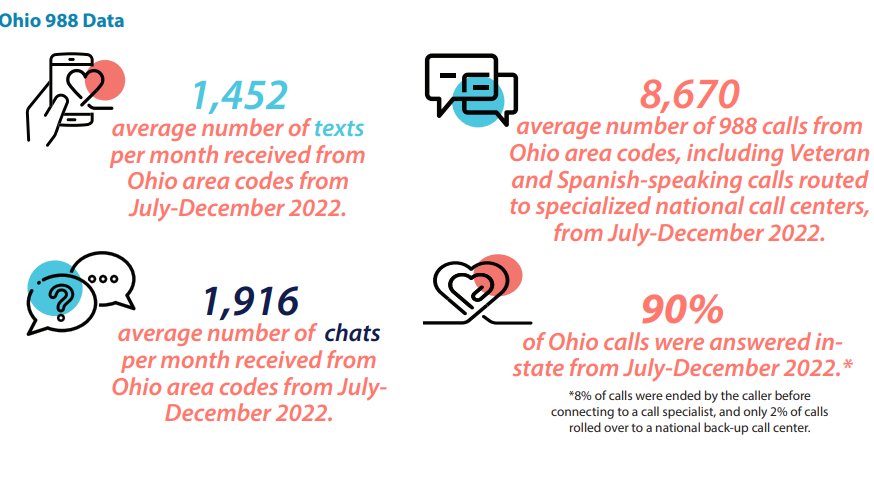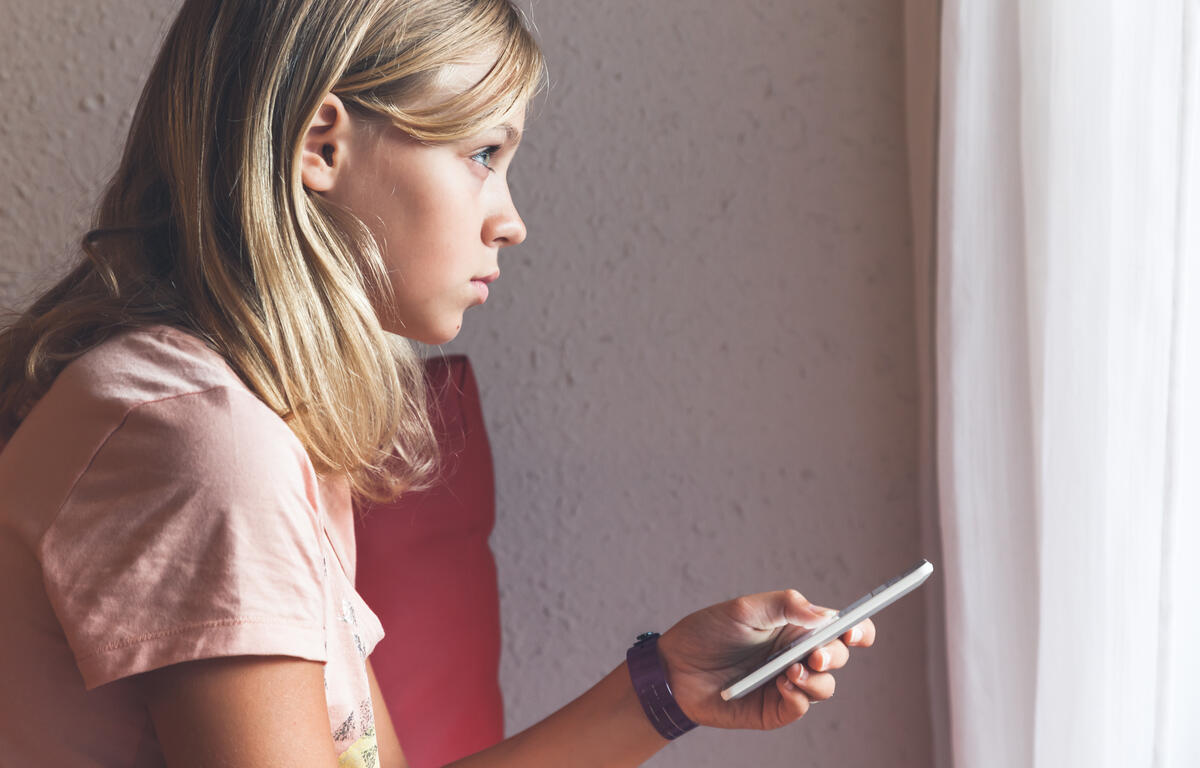Ohioans who are experiencing a mental health or addiction crisis can now access 24/7, free and confidential help and support by contacting the easy-to-remember, three-digit number, 988.
While most information online and in the news has shared the helpful and life-saving aspects of 988, as with anything new, there has also been some incorrect information being shared. Below is a list of some of the myths that have been circulating on social media about 988, along with correct information.
- Question: If you call 988, will a police officer be dispatched to your location?
Fact: 988 is NOT 911. 988 was created to alleviate the necessity of police involvement, and a police officer will not be dispatched to your location. When you call 988, a trained call specialist will answer your call, ask you to describe your crisis, will assist you over the phone, and link you to additional care and community resources as necessary. Research has shown that 80% of calls to the Lifeline can be managed and resolved over the phone; however in the rare circumstance where there is imminent risk to someone’s life, the call specialists may need to involve behavioral health mobile response or 911
for an immediate and safe response. In some rural areas of Ohio that do not have behavioral health mobile response, clinicians may respond with a local sheriff’s deputy in a co-responder model of care.
- Question: Are 988 call specialists qualified to respond to crisis situations?
Fact: 988 builds on the existing National Suicide Prevention Lifeline and all 988 call specialists receive thorough suicide prevention and crisis intervention training based on best practices. Ohio’s 988 call specialists are trained to listen and support callers who are in distress with a focus on de-escalation and coping skills. Callers can expect to receive compassionate and accessible care aimed at meeting the individual needs of each caller.
- Question: Does calling 988 automatically share my personal location information?
Fact: 988 allows the caller to receive the appropriate mental health support.
- People contacting 988 are not required to provide any personal data to receive services. Ohio recognizes the importance and the expectation of privacy when a person contacts 988.
- The network system has several safeguards to address concerns about privacy.
- Any effort to obtain demographic information from those who use 988 will serve three primary purposes:
- to save lives;
- to connect people to ongoing supports; and
- to evaluate system needs and performance, particularly ensuring that gaps and inequities are being addressed.
- For most callers, calling, texting or chatting 988 is the intervention. Crisis counselors will be able to resolve the urgent needs of the majority of callers on the phone or via text or chat, reducing the need for an in-person response overall. Additionally, SAMHSA, which oversees the 988 Suicide and Crisis Lifeline, states that, “Currently, fewer than 2% of Lifeline calls require connection to emergency services like 911.”
- Question: Does 988 only help people who are actively suicidal?
Fact: 988 provides 24/7, free, and confidential support to all Ohioans experiencing any type of mental health related distress — whether that is thoughts of suicide, mental health or addiction concerns, or any other kind of emotional distress. Individuals concerned about the mental well-being of someone they care about may also call 988 for support.



